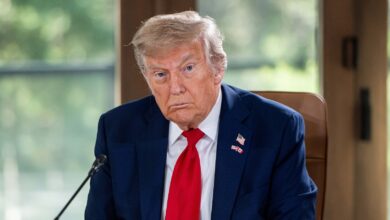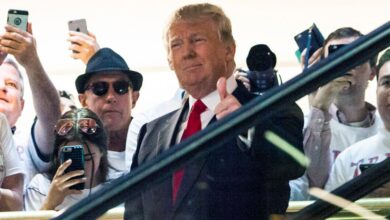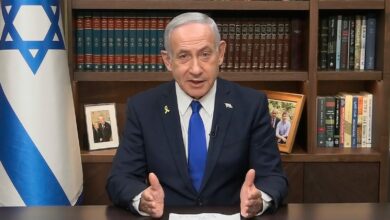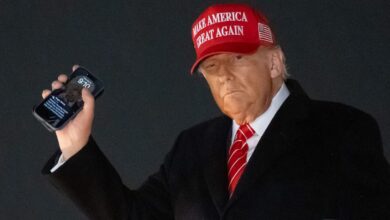Africans say a Black pope would be nice to have. But they are not too hopeful
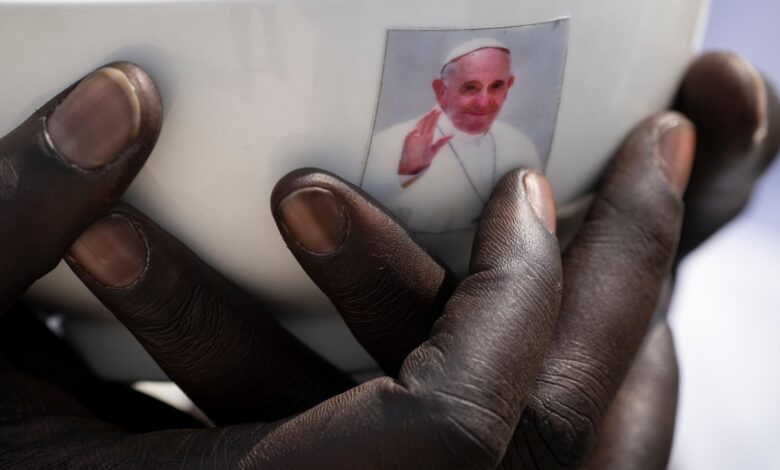
KAMPALA, Uganda — Should the next pope hail from sub-Saharan Africa, it would mark a historic first for the Catholic Church. While many Catholic Africans view this possibility as remote, there is cautious optimism among some that the successor to Pope Francis could be a Black cardinal from their continent.
The world will soon learn the outcome as the cardinals eligible to select the new pope convene for the conclave next Wednesday at the Sistine Chapel.
Among the potential candidates are three African cardinals being mentioned as “papabile,” a term used by Vatican observers to identify possible contenders for the papacy. These cardinals are Robert Sarah of Guinea, Peter Turkson of Ghana, and Fridolin Ambongo of Congo.
If any of them is chosen, it would mark the first time in over 1,500 years that an African pope leads the Catholic Church, and the first from sub-Saharan Africa. While this historical milestone has sparked enthusiasm for change in Africa, there remains a sense of tempered expectations.
Before the 2005 conclave that elected Pope Benedict XVI, there was speculation surrounding Francis Arinze, a highly esteemed cardinal from Nigeria, raising doubts about the readiness of the world for a Black pope from Africa.
In the decades since, Catholicism has seen a decline in Europe while experiencing growth in the developing world, with Africa witnessing a faster increase in the number of Catholics than any other region.
Africa accounts for at least 20% of the global Catholic community and is marked by a vibrant expansion of the Catholic Church, as highlighted in a recent report from the Vatican.
The potential selection of a pope from Africa or Asia, where Catholicism is also flourishing, would send a powerful message of inclusivity. However, as demonstrated during Francis’ papacy, efforts to promote inclusivity can also lead to dissent and division.
The three African cardinals considered as papal contenders—Sarah, Ambongo, and Turkson—are known to hold orthodox views on various contentious issues facing the Catholic Church, reflecting a broader trend of social conservatism on the continent with a population of 1.3 billion people. This conservatism has at times clashed with Pope Francis’ emphasis on mercy and acceptance for marginalized groups, including LGBTQ+ Catholics.
The real-life dynamics are mirrored in the fictional Oscar-nominated film “Conclave,” where one of the papal contenders is portrayed as a socially conservative cardinal from Nigeria.
Congo boasts the highest number of baptized Catholics in Africa.
Ambongo, who has been the archbishop of Kinshasa in Congo since 2018, recently endorsed a statement by the African bishops’ conference rejecting a Vatican directive allowing priests to provide spontaneous blessings to same-sex couples seeking spiritual grace.
Sarah, the Guinean cardinal and former liturgy chief at the Vatican, has been more vocal in his disagreements with Pope Francis.
An advocate for traditional practices, Sarah favors silent prayer and upholds the old Latin Mass, aligning himself with established doctrinal beliefs.
In response to Francis’ reinstatement of restrictions on celebrating the Latin Mass in 2021, Sarah publicly referenced Benedict’s earlier decision to relax these restrictions, posting quotes from Benedict’s 2007 decree. He accompanied these posts with a photo of Benedict wearing the red cape that Francis had opted against on the night of his election.
A year prior, Sarah stirred controversy by convincing Benedict to co-author a book reaffirming priestly celibacy at a time when Francis was considering ordaining married men to address a clergy shortage in the Amazon. Benedict eventually withdrew as a co-author as the situation escalated.
Although Sarah officially retired in 2021, he remains eligible to participate in the conclave. Since Francis’ passing on April 21, he has gained favor among European traditionalists seeking a return to the Church’s conservative policies.
In Africa, where Francis was widely admired for his engagement with the continent’s challenges, many Catholics desire a pope who can effectively lead and unite followers from around the globe.
Luka Lawrence Ndenge, an emergency officer with Caritas in Wau, South Sudan, emphasizes the importance of a pope who can unify Catholics, regardless of their background: “For us, it does not matter whether he is African, white, or Black. What matters is having a good, holy pope who can unite Catholics across the world.”
Bishop Tesfaselassie Medhin of Adigrat in Tigray, Ethiopia, hopes for a compassionate successor to Francis, who raised awareness of the conflict in Tigray. While Medhin values qualities like compassion, he also finds the prospect of a Black African pope exciting.
Emily Mwaka, head of the Catholic laity in Kampala, Uganda, stresses the importance of unity and inclusivity, regardless of the next pope’s background: “Even if the next pontiff is ‘green,’ he will be for all of us.”
Associated Press religion coverage is supported by the AP’s partnership with The Conversation US, funded by Lilly Endowment Inc. The AP is responsible for the content.


